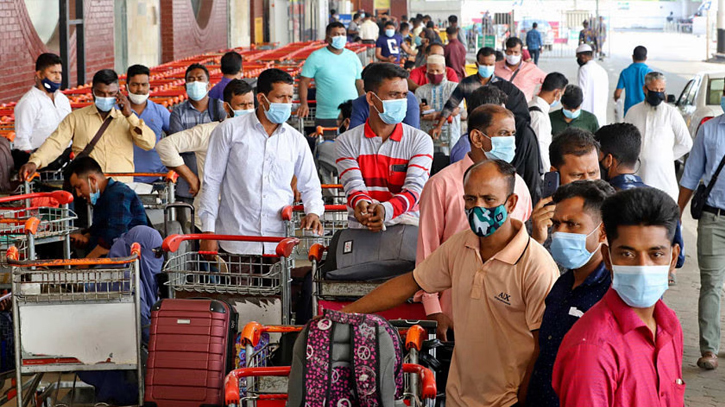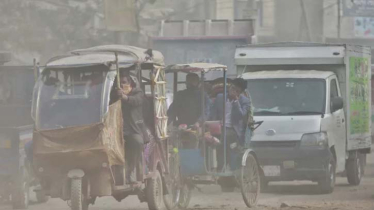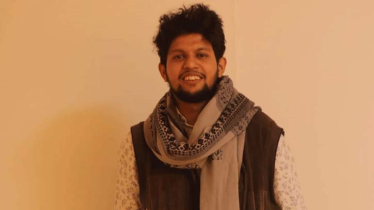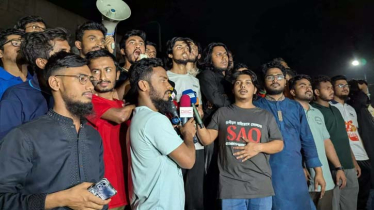
File Photo
Shamsunnahar is elated as she is leaving for the UK next month with her two daughters. Her husband Belal Hossain left for the UK in April upon getting a caregiver visa. Shamsunnahar could not go with her husband due to visa-related complications of her twin daughters.
“UK government has given the opportunity for permanent residence after five years. We have always dreamt of going to the UK with our main target of providing better education to our children and additional facilities like free education, treatment, welfare allowances and above all security for my daughters, which is not available in Bangladesh,” an elated Shamsunnahar told The Daily Messenger.
Shamsunnahar’s husband has got the chance to go to the UK with job visa through her relative who is staying in London. They are going via a legal solicitor based in the UK.
Like Shamsunnahar and her family, Ismail Hossain also left in May with his family after getting a caregiver visa in another hospital.
According to Shamsunnahar, the UK government is driving out illegal workers including caregivers from different hospitals now who went through middlemen. They are replacing them by freshly recruited caregivers since the process started last year.
An applicant has to sit for IELTS and other skills test to get caregiver visa.
Recently, Bangladesh has witnessed a significant rise in sending skilled workers to the United Kingdom, particularly in roles of caregivers, domestic staff and hospitality personnel.
About 4,107 skilled workers from Bangladesh have been sent across diverse sectors in the UK, marking an all-time high for a single year until August 10 this year, according to data from the Bureau of Manpower, Employment and Training (BMET).
In 2005, the UK hired the highest number of 2,793 workers from Bangladesh.
The rise in overseas staff joining the workforce came on the back of the government's decision to add "care workers" and "home carers" to its shortage occupation list for skilled workers in February 2022, enabling providers to directly recruit from abroad to these roles for the first time.
Over half of health and care visas were granted to staff from India (29,726), Nigeria (17,596) or Zimbabwe (17,421), with all three nations seeing rapid growth in the number of their citizens moving to the UK to work in health and social care.
Industry experts attributed a decrease in the influx of migrant workers from Europe post-Brexit, the lingering impacts of the pandemic leading to workforce burnout, and the UK government's stringent stance against hiring undocumented labour behind the surge.
They, however, noted that unauthorised agencies in both source and destination countries are capitalising on this trend.
"While we aren't directly dispatching workers to the UK, several individuals who have personally managed jobs are obtaining clearance cards from the BMET via our agency. Over the past one year, around 400-500 individuals have been able to secure BMET cards for UK opportunities through us," When inquired, Md Abu Bakar Siddique, managing director of the recruiting agency World Vision Overseas, said,
Over the past year and a half, an estimated 300 care workers, 280 restaurant waiters, 239 domestic workers, 98 chefs, 82 salespersons, and 48 caretakers have been recruited from Bangladesh.
The data indicates that the largest chunk of recruitment, 2,826 individuals, fell under the worker/labourer category, while 922 were classified as skilled workers.
However, the BMET authorities do not have clear information about the actual job category of these workers.
"Our aim is to promote employment opportunities in developed countries like the UK. While imposing restrictions for wrongdoing is necessary, it's crucial to safeguard job prospects for workers," BMET DG Shahidul Alam noted.
Md Mahabubur Rahman, a Bangladeshi-origin solicitor and immigration expert in the Supreme Court of England and Wales, explained that those categorised as 'Skilled Workers' predominantly secure roles in care-giving and the restaurant sector. Some also enter fields like IT and web development. The requirement of only four IELTS points has made entry into these positions quite accessible.
Highlighting a significant need, he said that with approximately 1 lakh openings for care-giver positions, Bangladesh falls short in providing sufficient formal education or training in this domain. Addressing this aspect deserves greater attention from the government.
Notably, the six most sought-after professions in the UK in 2023 encompass programmers and software developers, cybersecurity specialists, health services and residential care, architects, graphic designers, and physical scientists, as reported by various media sources.
The social care workforce has been boosted by 58,000 overseas staff over the past year, as revealed in UK government immigration figures published in May this year.
Amidst corruption concerns, the UK has prohibited the direct hiring of workers from certain countries, including Bangladesh.
TDM/FMT








